
A man walks in a devastated neighbourhood in Eastern Aleppo: photo by Karam al-Masri/AFP, 28 September 2016

A man walks in a devastated neighbourhood in Eastern Aleppo: photo by Karam al-Masri/AFP, 28 September 2016
Giuseppe Ungaretti: In Memoria
.......Locvizza il 30 settembre 1916
Si chiamava
Moammed Sceab
Discendente
di emiri nomadi
suicida
perchè non aveva più
Patria
Amò la Francia
e mutò nome
Fu Marcel
ma non era Francese
e non sapeva più
vivere
nella tenda dei suoi
dove si ascolta la cantilena
del Corano
gustando un caffè
E non sapeva
sciogliere
il canto
del suo abbandono
L'ho accompagnato
insiema alla padrona dell'albergo
dove abitavamo
a Parigi
dal numero 5 della rue des Carmes
appasito vicolo in discesa
Riposa
nel camposanto d'Ivry
sobborgo che pare
sempre in una giornata
di una
decomposta fiera
E forse io solo
so ancora
che visse

Si chiamava
Moammed Sceab
Discendente
di emiri nomadi
suicida
perchè non aveva più
Patria
Amò la Francia
e mutò nome
Fu Marcel
ma non era Francese
e non sapeva più
vivere
nella tenda dei suoi
dove si ascolta la cantilena
del Corano
gustando un caffè
E non sapeva
sciogliere
il canto
del suo abbandono
L'ho accompagnato
insiema alla padrona dell'albergo
dove abitavamo
a Parigi
dal numero 5 della rue des Carmes
appasito vicolo in discesa
Riposa
nel camposanto d'Ivry
sobborgo che pare
sempre in una giornata
di una
decomposta fiera
E forse io solo
so ancora
che visse

Cinquièmrue 6 (3 rue Basse des Carmes, Paris 5 e.): photo by André Fantelin, 24 August 2012
.....Locvizza 30 September 1916
His name was
His name was
Mohamed Sceab
Descendant
of emirs of nomadic tribes
took his own life
because he had lost
his Homeland
Loved France
and changed his name
Was Marcel
but wasn't French
had forgot how
to simply live
sipping a coffee
sipping a coffee
in the tent of his people
where the little singsong
of the Koran is chanted
And didn't know how to
give
his separateness
a voice
a voice
I went along with the concierge
from the hotel where we lived
in Paris
following his body
down the dingy alleyway
from number 5 rue des Carmes
His remains
rest
in the cemetery at Ivry
dolorous suburb
that always brings to mind
the day
a fairground comes down
It may be I alone
still know
he was once alive
Giuseppe Ungaretti (1888-1970): In Memoria, 30 September 1916, from ll porto sepolto, 1916; English by TC

Rescue workers and residents try to pull a man out from under the rubble of a building following an airstrike on the rebel-held neighborhood of Salhin in Aleppo: photo by Thaer Mohammed/AFP, 11 March 2016
When I saw this old man and his face covered in blood, mixed with the
dust of his house, looking at me, I imagined the man was telling me
“make your lens the witness to this crime that has been committed
against us!” His facial expressions affected me very much and every time
I would take a picture of him, I would imagine myself in his place,
being a survivor, not knowing what the fate of the rest of my family
members is, as he was the only one whose head was seen amid the rubble
and dust. Other times I’ve imagined him to be one of my family members
and I’m documenting the damned crime committed against him. Whenever
he’d look at me, I could see in his eyes the pain that women, children
and men of this nation have suffered, and images of victims of violence
in Syria would flash before my eyes.
-- Thaer Mohammed via Time Lightbox, 29 September 2016

A boy runs after airstrikes conducted by Syrian government forces hit a neighborhood in rebel-held Aleppo: photo by Beha el Halebi/Anadolu Agency, 24 April 2016
One day I heard that the Sukkari
neighborhood of Aleppo was under a heavy attack. I got on my motorbike
and rode down to Sukkari immediately. I saw casualties when I got
there. There was panic and women and children running in fear. Among the
dust cloud I saw a child was running away from the area and I took a
picture of him.
People were screaming for help and I was scared, too. The regime was
attacking the same areas again so I finished my work early and left the
shelled area. I sent the images to the agency. I have experienced this
kind of massacre before, so I can still hear the voices of people
screaming inside my head. Being a journalist in the world’s most
dangerous city is a very difficult job to do. We risk our lives to make
the world hear the systematic killing by Assad’s regime against
civilians. It is like screaming for help in a deep well where no one can
hear you.
Can anybody hear us?
-- Beha el Halabi via Time Lightbox, 29 September 2016

A man covered with dust sits on a street following a reported airstrike by Syrian government forces in the rebel-held neighborhood of Sukkari in Aleppo: photo by Baraa Al-Halabi/AFP, 30 May 2016
-- Baraa Al-Halabi via Time Lightbox, 29 September 2016

A boy is comforted as he cries next to the body of a relative who died in an airstrike in a rebel-held neighborhood of Aleppo: photo by Karam al-Masri/AFP, 27 April 2016
I took this picture in April after Syrian government forces shelled
the Al-Quds hospital in the Sukkari neighborhood of Aleppo. This kid
lost a number of his family members on that day -- his mother and younger
brother -- and his father had died a couple months before.
The boy was crying next to the body of his brother, after he was unable to identify his mother’s disfigured body. His intense crying reminded me of myself when I lost family members about three years ago in government airstrikes.
The boy later recognized his mother through the golden jewelry she was wearing. He then completely collapsed and sat beside her body on the ground, crying and saying “I have no one left except God to take care of me! Who will feed me now? Where will I go? How will I live?”
I can’t forget these words. This is one of the most heart-wrecking scenes for me. I couldn’t continue taking pictures as he was crying next to his mother’s body. Tears started filling my eyes as I remembered myself, how I was standing next to the body of my own mother. The only difference between us being that he is still a young child and cannot rely on himself, while I was 22.


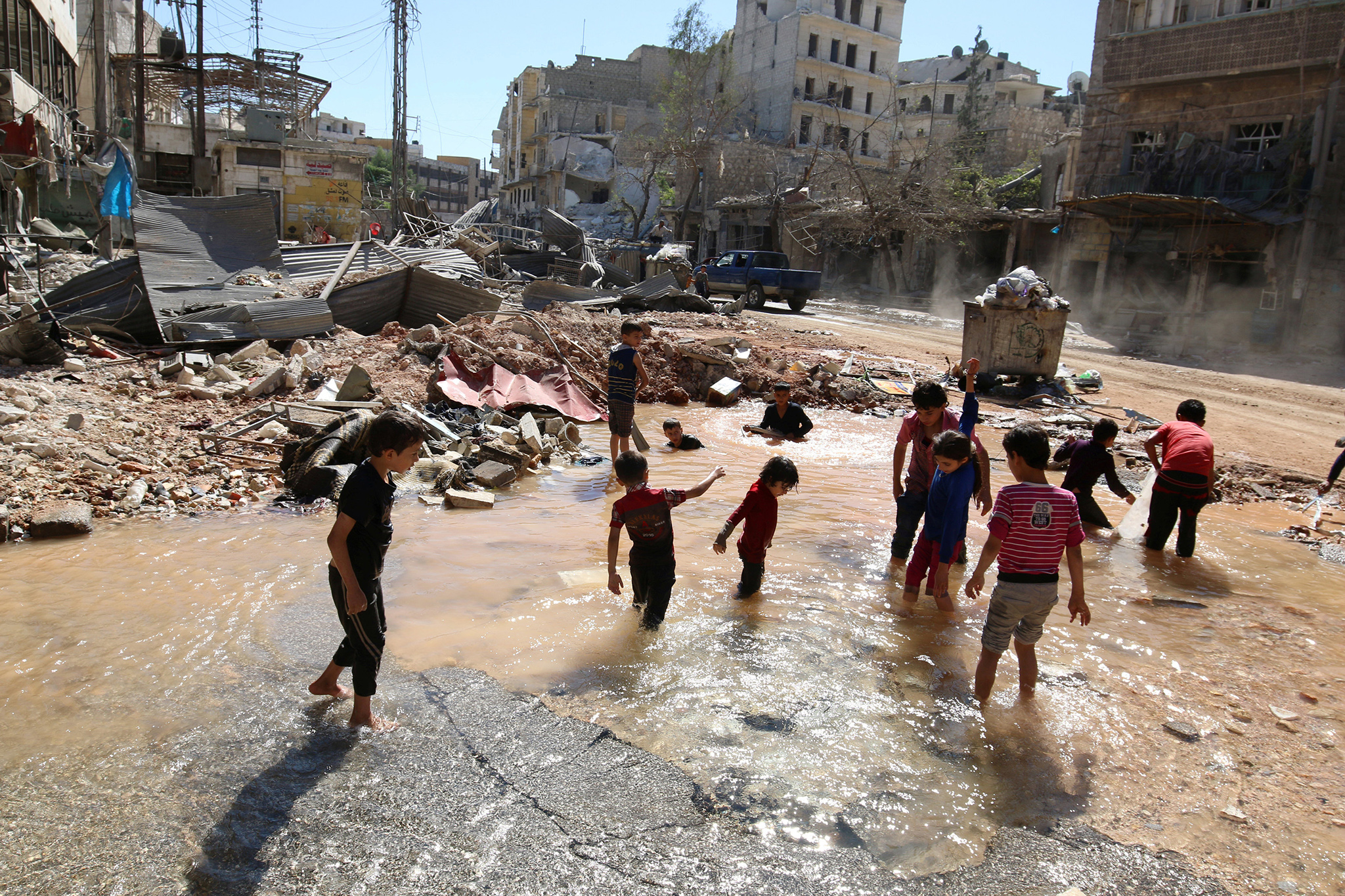

Airstrikes hit two bakeries in #Aleppo countryside early this morning, 77k people without bread. #HolocaustAleppo: image via Vero Ger @GerV29, 29 September 2016

He's alive he's trying to be alive or at least to survive, #Aleppo today no words can explain what he's feeling: image via Ahmad Alkhatib @AhmadAllkhtiib, 30 September 2016

He's alive he's trying to be alive or at least to survive, #Aleppo today no words can explain what he's feeling: image via Ahmad Alkhatib @AhmadAllkhtiib, 30 September 2016
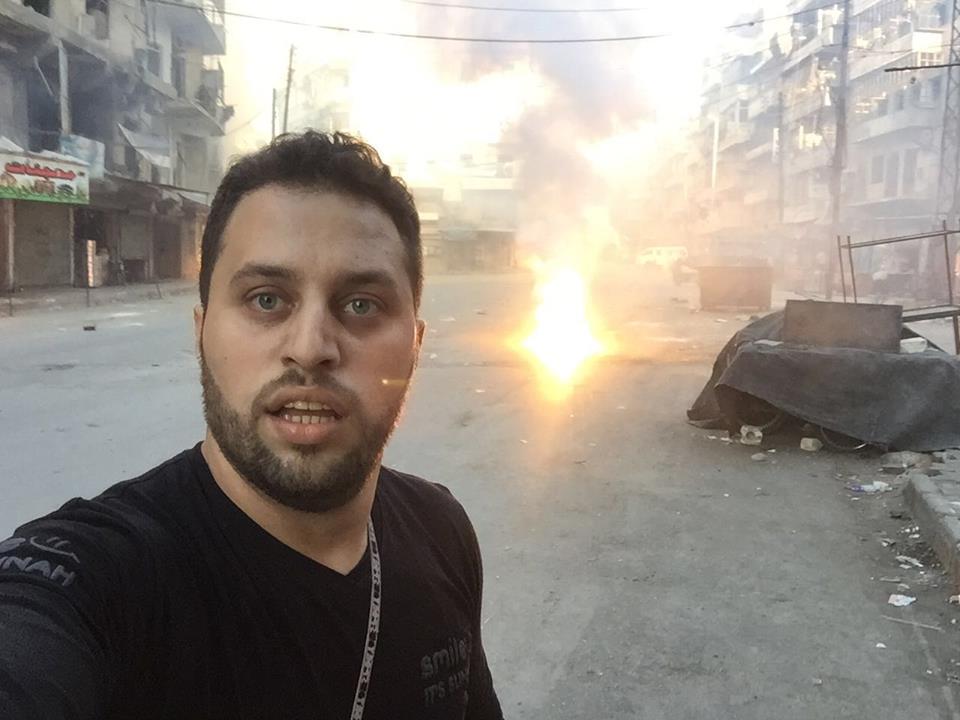
Aerial bombardment phosphorous bombs on opposition held neighborhood #Aleppo #HolocaustAleppo photo Mahmoud Rslan: image via HalabToday @HalabTodayTV, 30 September 2016
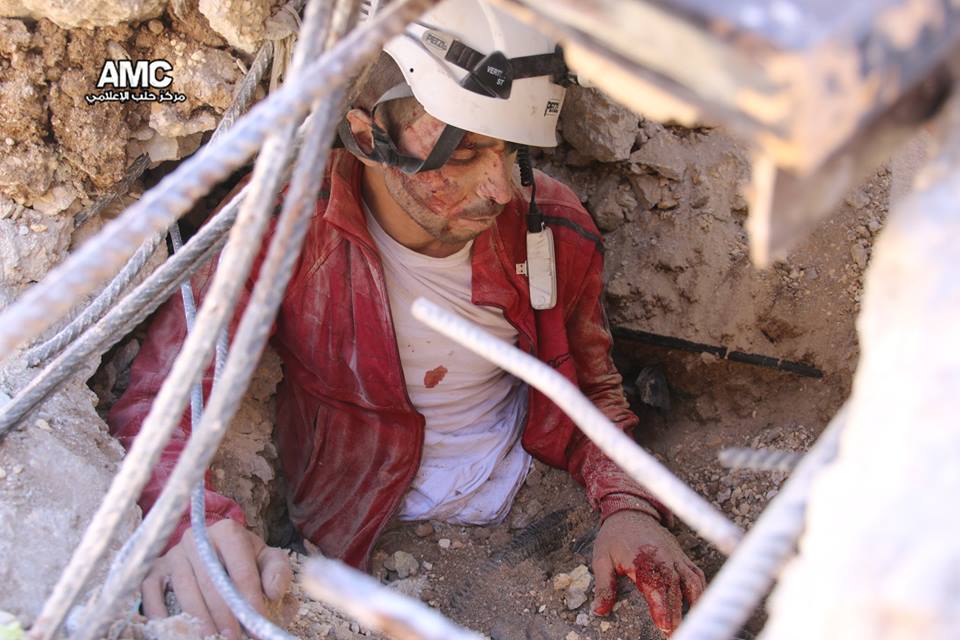
killing those who rescue US every hour, alike killing dozens of people, and these died while trying to save a soul, rest in peace! @Aleppo: image via Zouhir AlShimale @ZouhirAlShimale, 30 September 2016
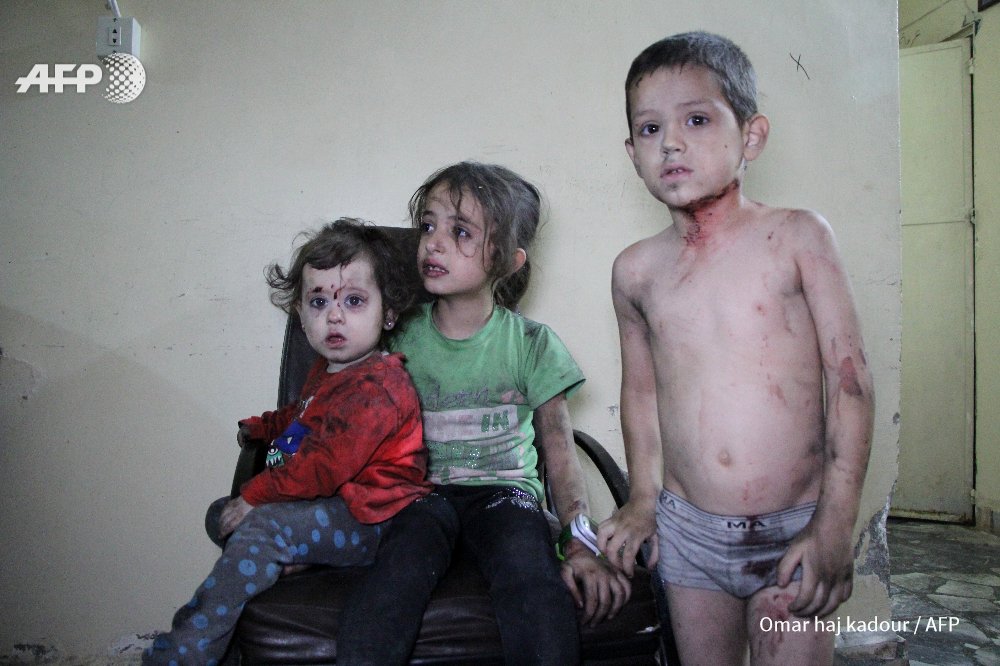
SYRIA - Wounded Syrian children await to receive treatment at a hospital following a reported air strike on Idlib. By @omarnajdat #AFP: image via Frédérique Geffard @fgeffardAFP, 30 September 2016
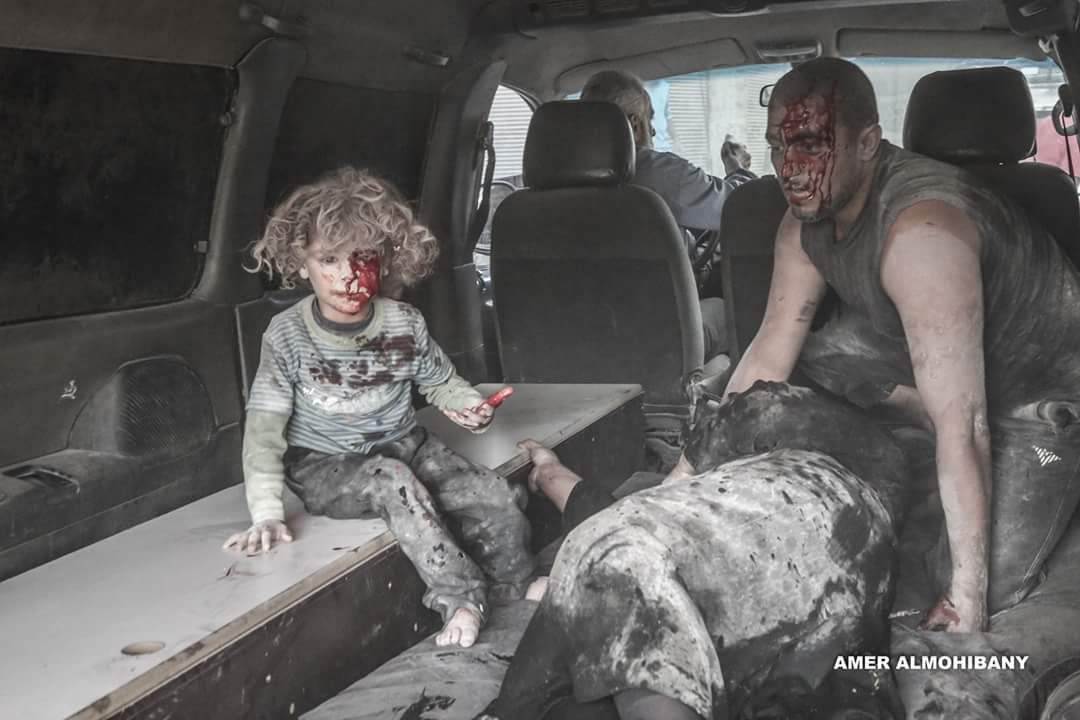
#Douma today: image via Fadi Hussein @fadihussein8, 30 September 2016
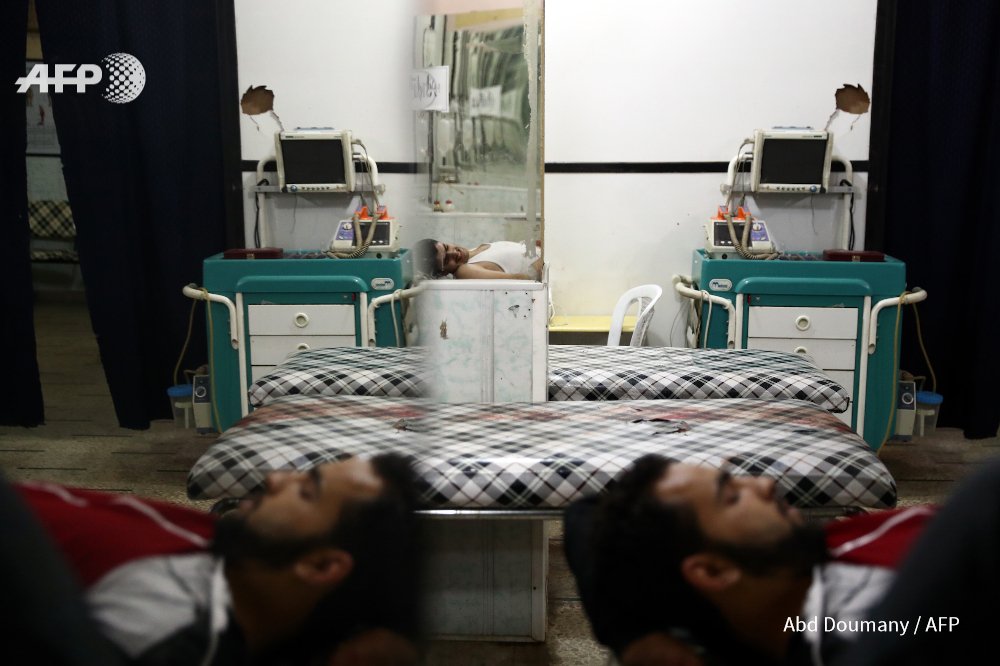
SYRIA - A wounded man is reflected in a mirror as he awaits treatment at a makeshift hospital in Douma. By @AbdDoumany #AFP: image via Frédérique Geffard @fgeffardAFP, 30 September 2016
Palestinian protesters carry a wounded comrade during clashes with Israeli security forces along the border fence with Israel on the eastern outskirts of Gaza City: photo by Mohammed Abed/AFP, 30 September 2016
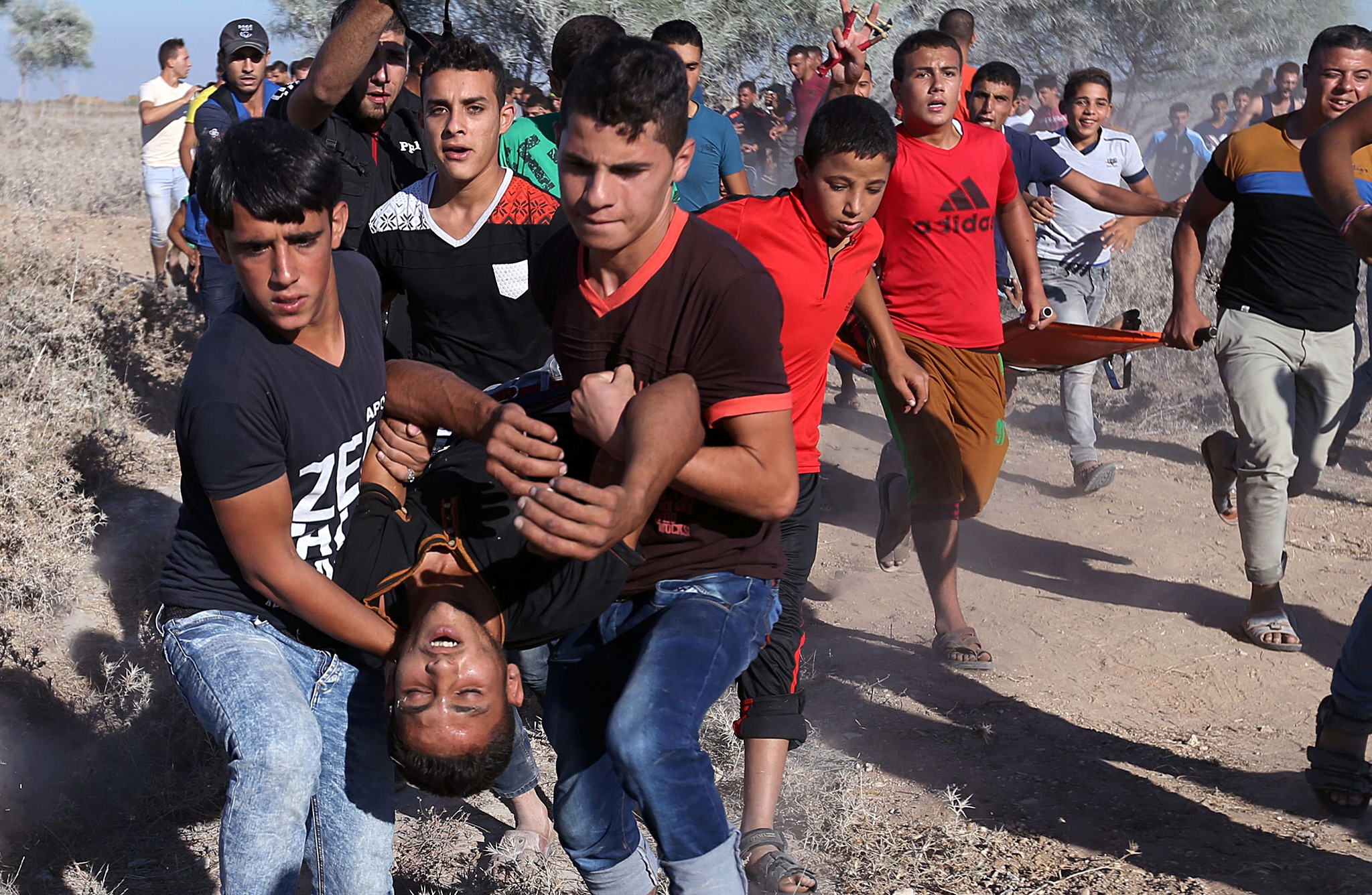
Palestinian protesters carry a wounded comrade during clashes with Israeli security forces along the border fence with Israel on the eastern outskirts of Gaza City: photo by Mohammed Abed/AFP, 30 September 2016
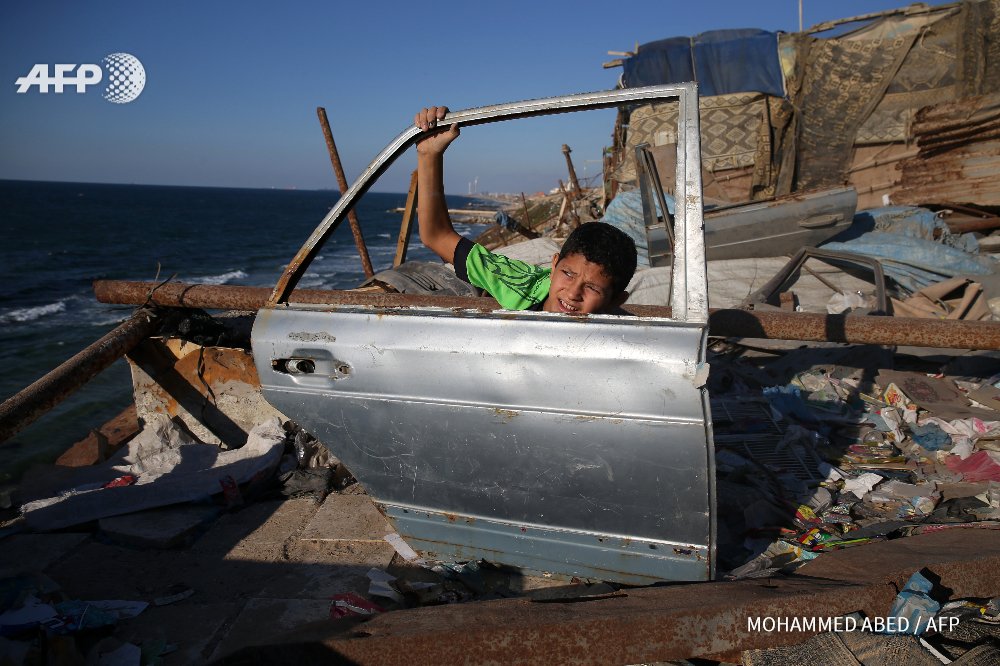

A man covered with dust sits on a street following a reported airstrike by Syrian government forces in the rebel-held neighborhood of Sukkari in Aleppo: photo by Baraa Al-Halabi/AFP, 30 May 2016
One day the market where Abu Adel works was hit by a barrel bomb. He
is married with four daughters and lives in the rebel-held neighborhood
of Sukkari in Aleppo, where he works as a fruit vendor to earn a living
and feed his children. He lost his cart full of cherries.
He sat next to it and was shocked to see what had happened and that
he had escaped death. When I see the photo, I feel sad that such an old
man doesn’t have children to help him earn a living. I feel sad how
people are dying and that there is no human value left, as they become
merely documented numbers.
I loved the photo because I found him again on a different occasion,
selling vegetables in the neighborhood with his fixed cart. After all
that he went through, life went on.

A boy is comforted as he cries next to the body of a relative who died in an airstrike in a rebel-held neighborhood of Aleppo: photo by Karam al-Masri/AFP, 27 April 2016
The boy was crying next to the body of his brother, after he was unable to identify his mother’s disfigured body. His intense crying reminded me of myself when I lost family members about three years ago in government airstrikes.
The boy later recognized his mother through the golden jewelry she was wearing. He then completely collapsed and sat beside her body on the ground, crying and saying “I have no one left except God to take care of me! Who will feed me now? Where will I go? How will I live?”
I can’t forget these words. This is one of the most heart-wrecking scenes for me. I couldn’t continue taking pictures as he was crying next to his mother’s body. Tears started filling my eyes as I remembered myself, how I was standing next to the body of my own mother. The only difference between us being that he is still a young child and cannot rely on himself, while I was 22.
-- Karam Al-Masri via Time Lightbox, 29 September 2016

The rubble of war in the rebel-held Tariq al-Bab neighborhood of Aleppo on Monday: photo by Abdalrhman Ismail/Reuters, 26 September 2016

The rubble of war in the rebel-held Tariq al-Bab neighborhood of Aleppo on Monday: photo by Abdalrhman Ismail/Reuters, 26 September 2016

Children play with water from a burst water pipe at a site hit
yesterday by an air strike in Aleppo’s rebel-controlled al-Mashad
neighbourhood, Syria.: photo by Abdalrhman Ismail/Reuters, 30 September 2016

Airstrikes hit two bakeries in #Aleppo countryside early this morning, 77k people without bread. #HolocaustAleppo: image via Vero Ger @GerV29, 29 September 2016

He's alive he's trying to be alive or at least to survive, #Aleppo today no words can explain what he's feeling: image via Ahmad Alkhatib @AhmadAllkhtiib, 30 September 2016

He's alive he's trying to be alive or at least to survive, #Aleppo today no words can explain what he's feeling: image via Ahmad Alkhatib @AhmadAllkhtiib, 30 September 2016

Aerial bombardment phosphorous bombs on opposition held neighborhood #Aleppo #HolocaustAleppo photo Mahmoud Rslan: image via HalabToday @HalabTodayTV, 30 September 2016

killing those who rescue US every hour, alike killing dozens of people, and these died while trying to save a soul, rest in peace! @Aleppo: image via Zouhir AlShimale @ZouhirAlShimale, 30 September 2016

SYRIA - Wounded Syrian children await to receive treatment at a hospital following a reported air strike on Idlib. By @omarnajdat #AFP: image via Frédérique Geffard @fgeffardAFP, 30 September 2016

#Douma today: image via Fadi Hussein @fadihussein8, 30 September 2016

SYRIA - A wounded man is reflected in a mirror as he awaits treatment at a makeshift hospital in Douma. By @AbdDoumany #AFP: image via Frédérique Geffard @fgeffardAFP, 30 September 2016
Palestinian protesters carry a wounded comrade during clashes with Israeli security forces along the border fence with Israel on the eastern outskirts of Gaza City: photo by Mohammed Abed/AFP, 30 September 2016

Palestinian protesters carry a wounded comrade during clashes with Israeli security forces along the border fence with Israel on the eastern outskirts of Gaza City: photo by Mohammed Abed/AFP, 30 September 2016

GAZA CITY - A Palestinian boy holds an old car door that he found near the beach. By @mohmdabed #AFP: image via Frédérique Geffard @fgeffardAFP, 29 September 2016


President Obama attends the funeral of Shimon Peres: photo by Stephen Crowley/The New York Times, 30 September 2016

Makeshift shelters at a camp known as The Jungle in Calais: photo by Tyler Hicks/The New York Times, 26 September 2016
 .
.
Makeshift shelters at a camp known as The Jungle in Calais: photo by Tyler Hicks/The New York Times, 26 September 2016
 .
.Makeshift shelters at a camp known as The Jungle in Calais: photo by Tyler Hicks/The New York Times, 26 September 2016





Overgrown railroad tracks in an industrial area just outside the camp: photo by Tyler Hicks/The New York Times, 26 September 2016

.

.
Overgrown railroad tracks in an industrial area just outside the camp: photo by Tyler Hicks/The New York Times, 26 September 2016

Men prepare meals in the evening: photo by Tyler Hicks/The New York Times, 26 September 2016

Men prepare meals in the evening: photo by Tyler Hicks/The New York Times, 26 September 2016

Men prepare meals in the evening: photo by Tyler Hicks/The New York Times, 26 September 2016

Men prepare meals in the evening: photo by Tyler Hicks/The New York Times, 26 September 2016

The Jungle, as the shades of evening come down: photo by Tyler Hicks/The New York Times, 26 September 2016

The Jungle, as the shades of evening come down: photo by Tyler Hicks/The New York Times, 26 September 2016
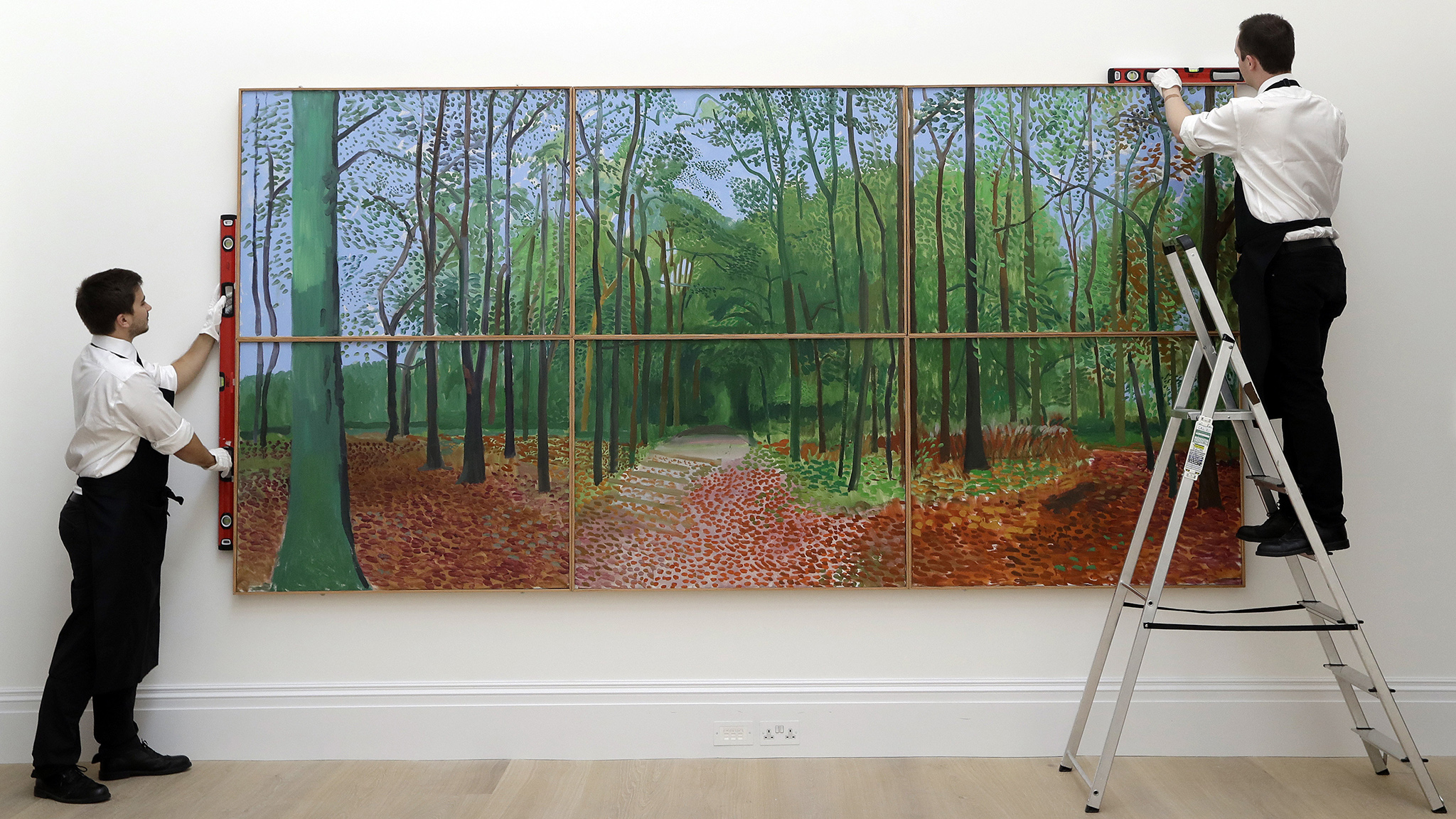
Sotheby's employees hang a painting by David Hockney called ‘Woldgate Woods, 24,25 and 26 October, 2006′ at Sotheby’s auction rooms in London. The painting is estimated to sell for 9 million pounds and will be auctioned in the Contemporary Art Evening Auction in New York on November 17.: photo by Kirsty Wigglesworth/AP, 30 September 2016

Sotheby's employees hang a painting by David Hockney called ‘Woldgate Woods, 24,25 and 26 October, 2006′ at Sotheby’s auction rooms in London. The painting is estimated to sell for 9 million pounds and will be auctioned in the Contemporary Art Evening Auction in New York on November 17.: photo by Kirsty Wigglesworth/AP, 30 September 2016
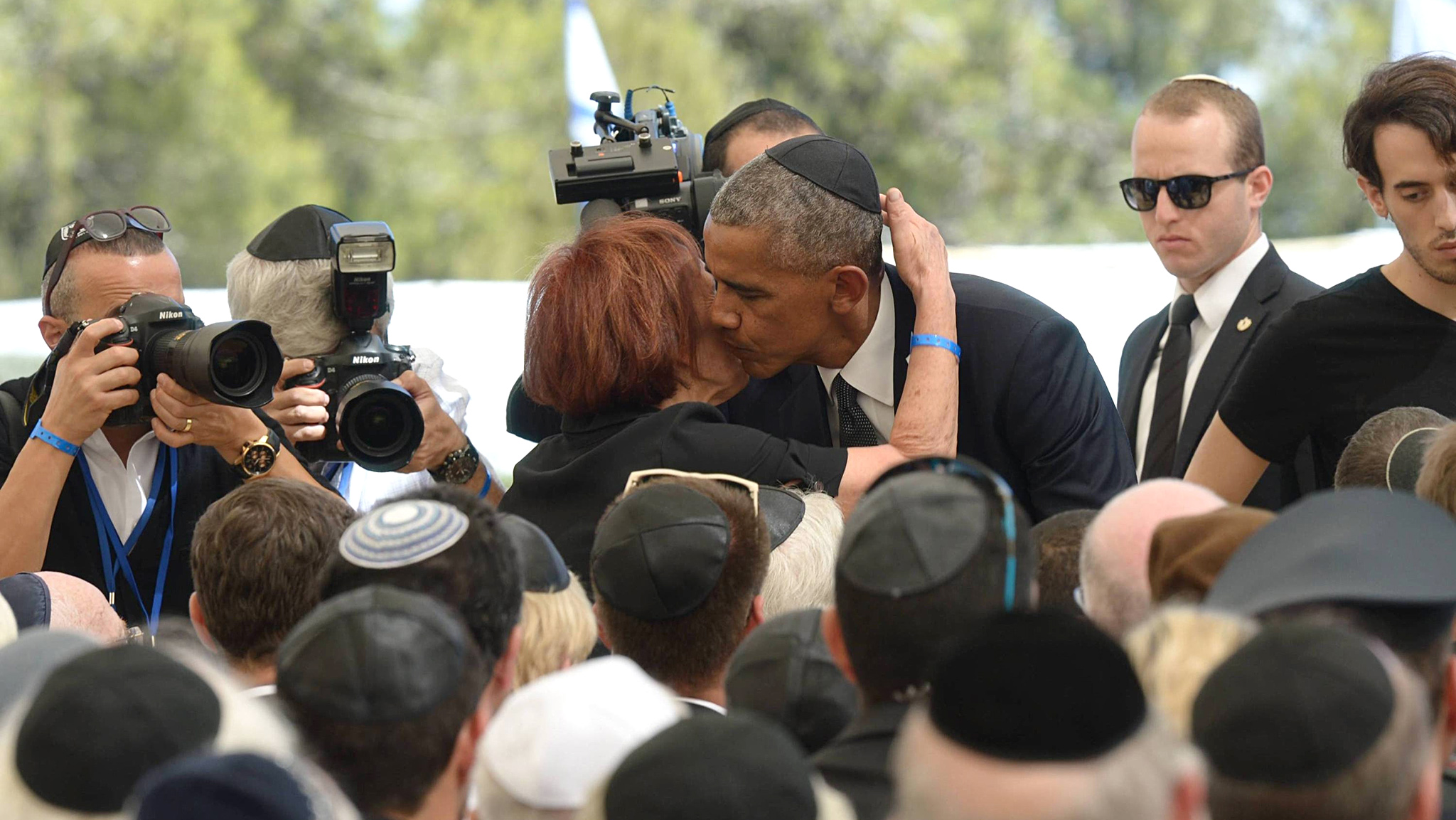



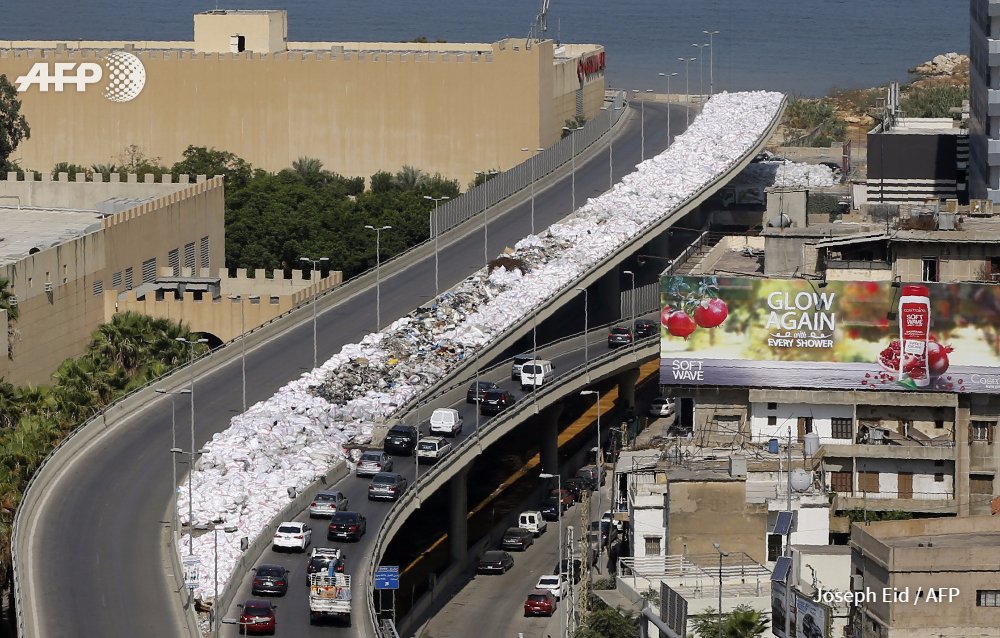
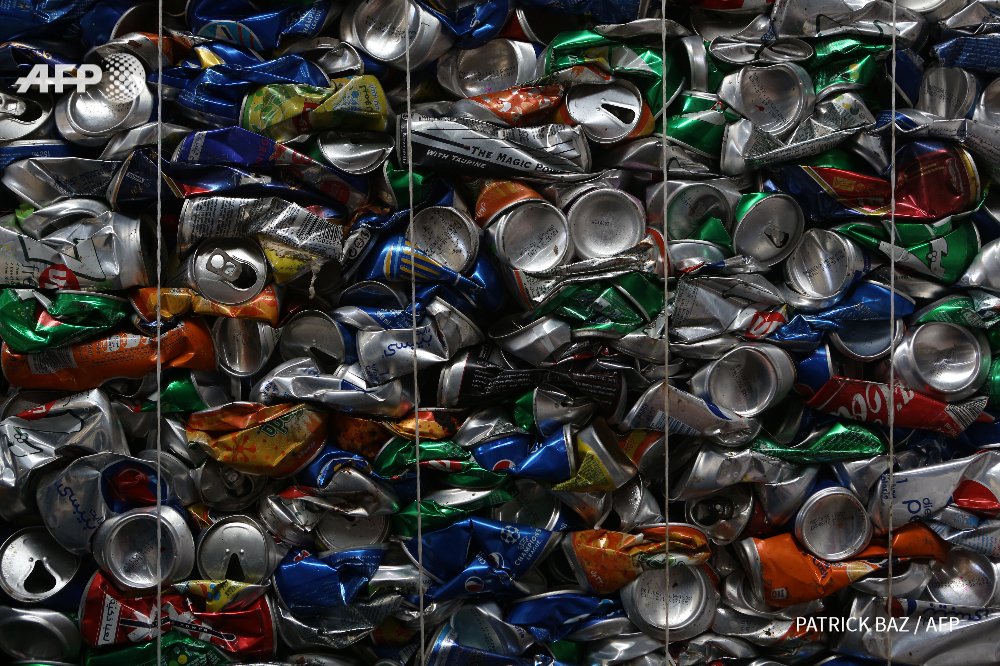




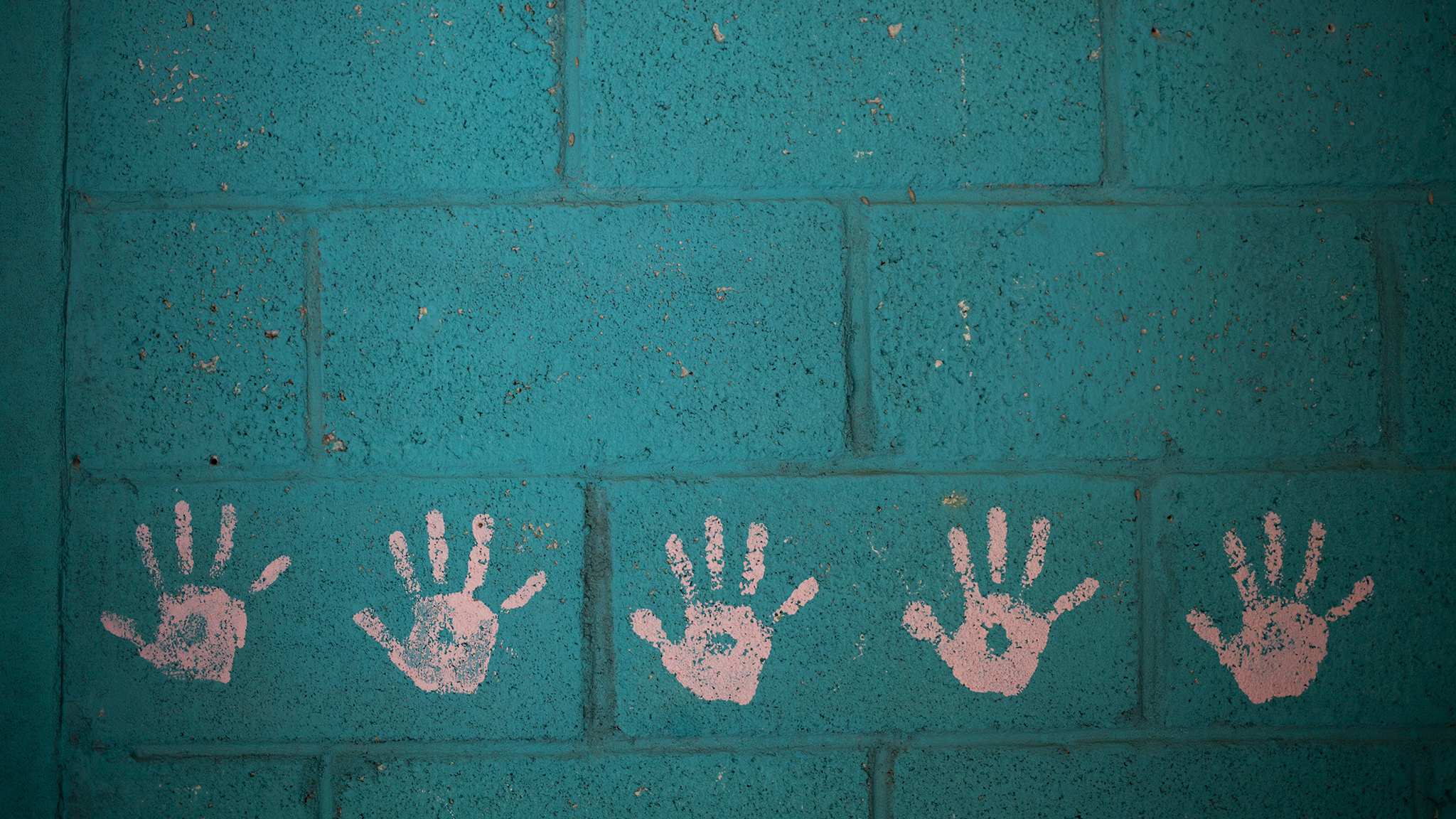



8 comments:
Su nombre era Mohamed Sceab
Descendiente de emires y tribus nómadas
Se suicidó
Porque había perdido su tierra natal
Amaba a Francia
Y cambió su nombre
Era Marcel
Pero no era francés
Había olvidado
Cómo era vivir simplemente
Bebiendo café
En una tienda
Con su gente
Donde se tararea
La canción del Corán
Y no sabía
Cómo darle
A su aislamiento
Una voz
Lo acompañé con el conserje
Del hotel donde vivía
En París
Siguiendo su cuerpo
Desde el sucio callejón
En el número 5 de la calle Carmes
Él descansa
En el cementerio de Ivry
Lacerante suburbio
Que recuerda
El día
En que termina una verbena
Puede ser que yo
Solamente sepa
Que él vivió alguna vez
Bombs doing their best to drown out "...the little sing song of the Koran".
The bright colours of the Hockney seem almost obscene in the wake of all that white dust.
Duncan,
Ungaretti was surprised to find himself experiencing strange elations amid the most horrendous shelling in the trenches. There surrounded by the savage din... though his notebook poems from that stark situation do show the benefit of being direct and quick, each chance to write perhaps the last. They do have a little sing song, of a kind.
The Hockney -- well, "almost" would be magnanimous.
Sandra,
Thanks very much for that. I believe I prefer it to my own effort. Especially like the lacerante suburbio!
A bit of background perhaps useful here.
Ungaretti grew up in Alexandria, the son of an Italian engineer from Lucca who died (of an illness contracted during the excavation of the Suez canal) when the poet was an infant. The family owned a bakery in Alexandria, and Ungaretti's mother stayed on to maintain it. During his school years at the Ecole Suisse in Alexandria he began a literary friendship with a fellow student, Mohammed Sceab. They read the reviews and talked and met other young writers in the cafes; in a note on another of his early poems Ungaretti recalls "those cafes my friends who did the neo-Hellenic review Grammata used to go to, and where Sceab and I used to go to sip our evening yogurt." They discovered Baudelaire, Mallarmé, Leopardi, Nietzsche, and wrote poems of their own. In 1912 Ungaretti left Egypt, saw Italy for the first time, then moved on to Paris, where he meant to study law. Once again he was accompanied in these discoveries by Mohammed Sceab. They lived in the same hotel in Paris, on the rue des Carmes. Ungaretti spent two years in Paris, took courses at the Sorbonne and mingled with the modern poets and artists, Apollinaire, Jacob, Cendrars, deChirico, Modigliani, Picasso, Braque. In the summer of 1913 Mohammed Sceab committed suicide. With the outbreak of the 1914 war, Ungaretti moved to Milan, then entered the Italian army when Italy entered the war, and was sent immediately to Carso on the Austrian front, as an ordinary infantrymen. There he began writing the poems that would form his first collection.
Ungaretti, already a young man of several homelands, cast into the terror of the trenches, and thus dislocated, as a human, from humanity, recognized in the tragedy of his friend's death a kind of cultural dislocation -- the wrench of the passage. In another poem of the same period Ungaretti lamented that he felt at home nowhere on earth; Girovago (Wanderer) is the title. Here he shows real sensitivity to his friend's problems adjusting to life in the West. Mohammed Sceab's situation is perhaps not all that uncommon now, as those displaced by war attempt the problematic transit between civilizations. Ungaretti's poem captures the tragic aspect of this dislocation.
Sceab, an Arab, descendant of nomadic tribes, had lost touch with his past, and felt lost in the West. Ungaretti's sympathy with his friend's plight is deepened by his own private sense of deracination, his wandering among homelands, and his permanent sense of dislocation in the world.
thanks !
Tom,
I found the poem incredibly moving. Thank you for sharing it. In a century when lots of people are living in temporary settlements and everyone is on the move-and who knows, as climate change kicks the trend may only become more pronounced-I think the poem will resonate with a lot of people. As someone who never fitted in as a British-Muslim, British-Pakistani or, to think of it, even back here in the land of the pure, I think I understand something of what Sceab felt 100 years ago.
billoo,
There is a remark Ungaretti made concerning what he called "my suicide friends", implying that Sceab's was not the only Alexandrian passage-to-Europe tragedy in his experience.
The stark minimal telling of the story and the palpable sympathy make the poem very powerful. I think your reading in light of your own experience adds something to my own sense of the poem. (I read it in much the same way -- from the other direction, so to speak.) Thanks for that.
Yes, Tom, I hear what you're saying. But I wonder about the words, "lost a Homeland," and what that *really* means. Given the way I've been brought up I have no affiliation with any country, any country that exists, but to lose a homeland suggests not just a melancholic nostalgia for it (since it's never *really* lost) but also that one is ripped out of a supporting web of relations, afloat...
As kids me and my sister would sometimes visit an old Egyptian couple my father knew (there weren't many Muslims in town so we tried to keep in contact with these scattered people..Yemenis, Indians...). Malika, with her glass eye and broken English, considered me a son (she was childless). But the thing I wanted to say was..her husband worked on a ship and was only ever back for short periods. But even then he would sit in his room, not saying a word, with the windows open, smoking like a chimney, listening to to the recitation of the Qur'an on his radio and I remember thinking: he's not really *here*.
Well, that was all of us, I suppose. I think it's changed for the next generation, though.
That's an image to think upon, and quite moving as such.
To be "not really *here"... there are moments, these days, when I feel that is the perpetual state of any of us who remembers anything at all.
(That is, the old.)
Post a Comment